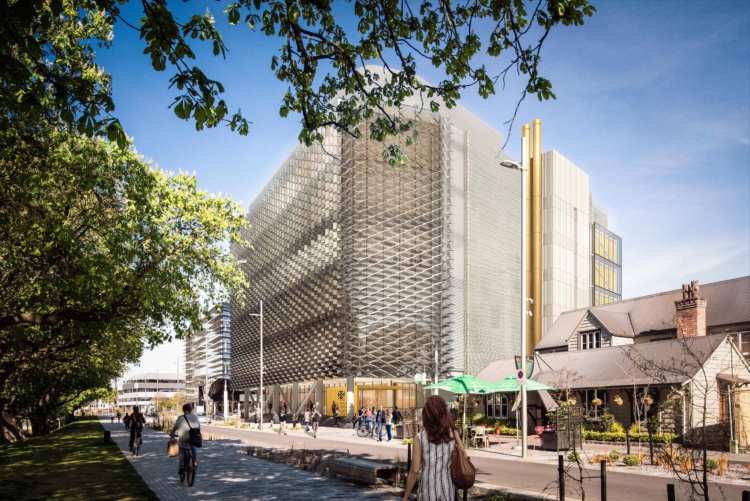It’s no secret that the property, infrastructure, and construction industry is challenging right now. At Assemble, we're in a unique position to engage in regular discussions with Industry Leaders, covering market trends and future outlooks. In our new series, 'Industry Leader Insights,' we're sharing these insights with our community, featuring conversations with various industry leaders who offer their perspectives on the market and insights into how their businesses are navigating current conditions.
We were pleased to kick off the series with Andrew Haig, Christchurch Regional Lead of Rubix. Ever generous with his time and insights, we know you will find this an interesting read.
What are the trends currently shaping the industry?
Context is crucial, and at Rubix, this context is defined by the clients we serve. Our current portfolio in Canterbury is heavily weighted towards public sector clients such as universities, airports, Crown Research Institutes, Te Whatu Ora and the Ministry of Education. While both the public and private sectors have faced challenges, those with a focus on private sector clients are likely feeling the pinch more acutely, with many developers closely watching key economic indicators before pushing the ‘go’ button on their projects.
The public sector has not been immune to current market conditions. The change in government last year led to a re-evaluation of operations, a quest for better value, delays, and many project stoppages. Auckland has been particularly affected, but we've been pleased to see projects continuing in regions such as Northland, Wellington and the lower South Island, which are helping to bolster our pipeline.
Economic trends add another layer of complexity. Investment hesitancy, influenced by high interest rates, affects project timelines and funding. We are in a flat market, which means less work and fierce competition. A trend we've noticed is aggressive pricing and some fee undercutting. Some companies appear to be pricing projects very leanly, potentially hoping to recoup costs later. At Rubix, we've made a conscious decision to maintain sustainable pricing that we can uphold throughout the project without compromising on the quality of our delivery service.
In the consulting client-side project management sector, we’ve seen some players advocating for bypassing an independent PM service and offering their version of PM services direct to clients. While this approach can simplify contracting relationships, it risks losing the comprehensive oversight, independence, and value that a dedicated PM provides. We caution clients against putting all their eggs in one basket, and we promote a balanced approach that leverages high quality independent project management expertise.
How is technology influencing your business?
At Rubix, we're exploring the integration of AI to enhance problem-solving and information gathering. Technology has a significant role to play in improving efficiencies within the project delivery space. However, we firmly believe in the irreplaceable value of human interaction in project management. Our team members excel not only in IQ but also in EQ, ensuring effective communication and relationship management with clients and contractors.
How are you managing your workforce and resourcing requirements in the current environment?
Our goal is to maintain a high utilisation rate for our team, balancing project work with internal collaboration and networking. This allows us to stay agile and ready to meet client needs without overburdening our staff. Maintaining optimal utilisation is a continuous challenge, but our national presence means we're able to resource some regional projects from our larger offices and have managed to retain our entire team.
While we currently aren't replacing people who leave—something that happens rarely—we are being very selective with our hiring. However, we are committed to keeping the NZ talent pool employed and engaged. The broader industry's workforce dynamics are concerning, with employers reducing headcount to survive the challenging market, leading to talent leaving the industry. This could create a talent gap when the market rebounds.
What is the future outlook you are working towards?
As we look ahead, a common slogan we hear is 'Survive to 2025,' but at Rubix, our mantra is to "Thrive to 2025." In a low market cycle, strengthening relationships is key. We are focused on maintaining existing connections and forging new ones, showcasing our capabilities so that when the market recovers, Rubix is top of mind.
We anticipate a gradual market uptick from the 2ndhalf of next year for project management, driven by increased activity from large organisations. This momentum will take time to filter through the typical project cycle, with PM being one of the first areas to show positive signs given we are among the first consultants engaged.
We continuously assess our sector involvement, particularly in infrastructure and three waters. These areas will require robust capabilities to improve New Zealand's infrastructure, and we are positioning ourselves to contribute significantly, while enhancing our existing relationships in health, aviation, education, and other government sectors.
Thanks so much to Andrew for his insights. Keep an eye on the Assemble LinkedIn page for more chats with Industry Leaders.
